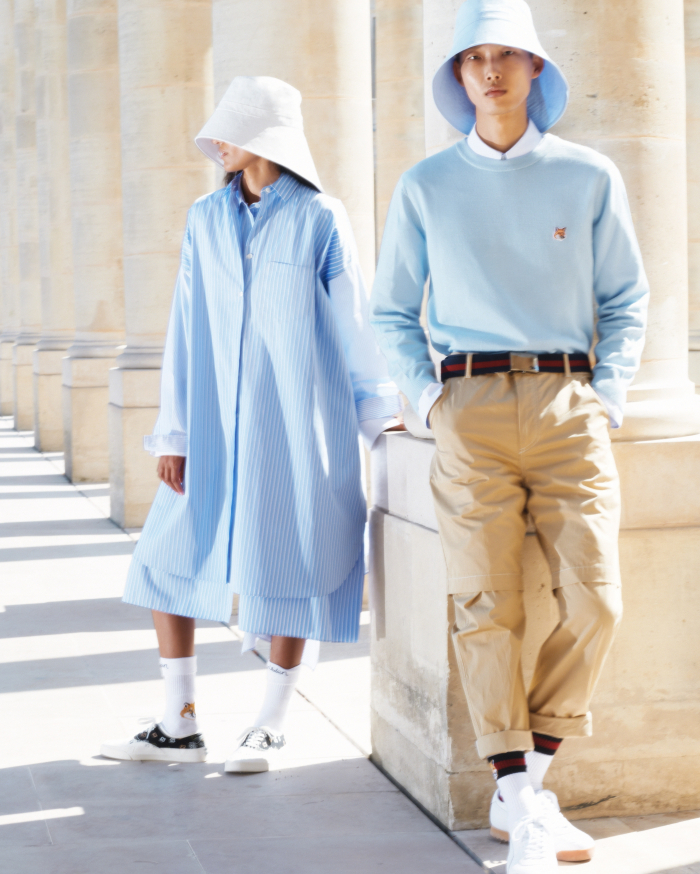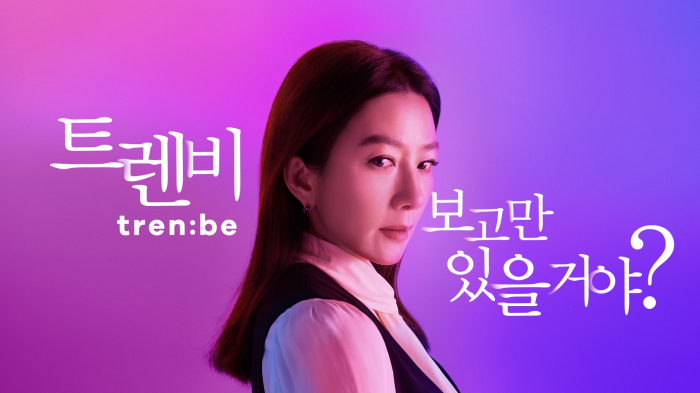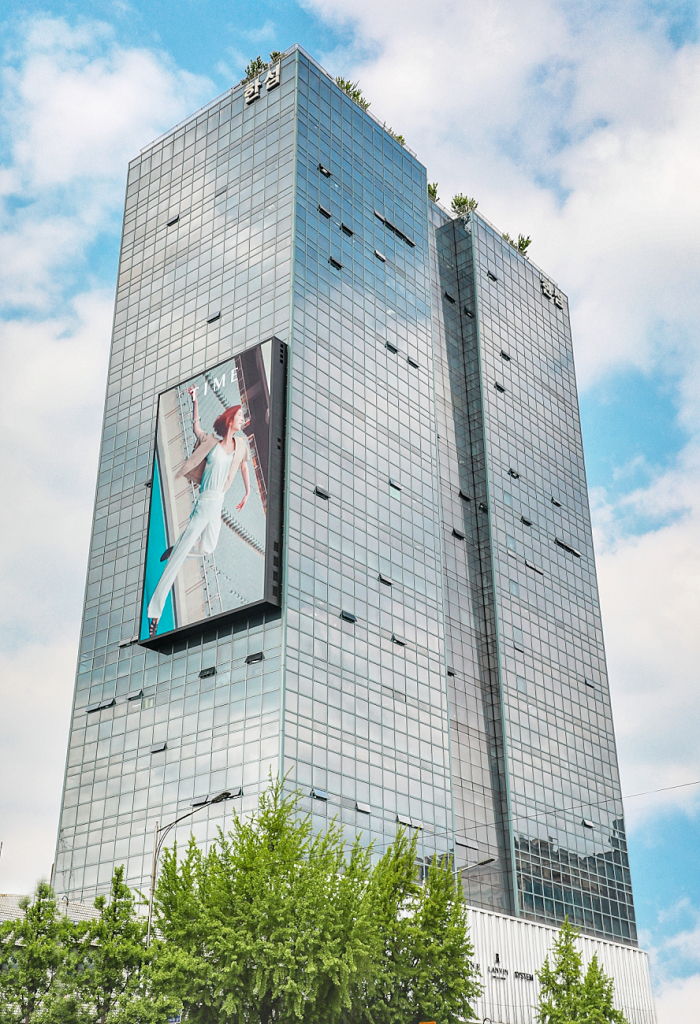Retail
South Korean millennials pay premium for authentic luxury items
Traditional retail heavyweights like Samsung, Shinsegae, and Handsome saw an average 35% rise in Q1 revenue
By May 31, 2022 (Gmt+09:00)
4
Min read
Most Read
LG Chem to sell water filter business to Glenwood PE for $692 million


KT&G eyes overseas M&A after rejecting activist fund's offer


Kyobo Life poised to buy Japan’s SBI Group-owned savings bank


StockX in merger talks with Naver’s online reseller Kream


Meritz backs half of ex-manager’s $210 mn hedge fund



South Korea’s traditional retail heavyweights are the unexpected winners of the recent counterfeit controversy in the high-end fashion industry.
Samsung C&T Corp., Handsome Corp., and Shinsegae International sell traditional and new luxury fashion items through their respective online shopping malls.
Even though the items sold on the platforms cost more than they do on the parallel import counterparts, the traditional sellers are attracting millennials and members of Gen Z. Experts say the luxury customers, most of whom are in their 20s and 30s, are willing to pay a premium to not have to worry about counterfeits.
Parallel imports refer to branded goods that are imported into a market and sold there without the trademark owner’s consent in that market. In South Korea, it is usually through a selling platform's designated buyers making the purchases overseas to list them on the site.
NEW MONEY TO OLD PLATFORMS
On average, the retail giants saw a 35% rise in their revenue for the first quarter of this year.
Out of the three, Handsome saw its first quarter online sales reach past the 100 billion won ($81 million) threshold. The company saw its online sales jump 33% to 106.6 billion won ($86 million) in the first three months of this year from the same period a year prior.
Samsung C&T’s integrated online store SSF Shop saw its first quarter sales increase 45% from the same quarter the previous year to a record high figure of $120 billion won.
Shinsegae International, for its part, saw its first quarter online sales jump 30% on-year to 70 billion won.
The traditional retailers seem to have won the competition for the sale of online of high-end designer goods against the newer luxury e-commerce platforms.
Earlier this month, South Korean e-commerce startups have seen massive hikes in their valuations on the back of robust online spending by the younger generation.
Three platforms dominate the country's luxury fashion startup ecosystem: Balaan, Must It, and Trenbe Inc. The three operators each recorded around 300 billion won in trade volume as of late last year.

The newer platforms bring in the products through parallel imports, which lowers the cost but has higher risk of counterfeits getting in the mix.
On the internet community boards, dozens of new posts go up a day asking the members to check the authenticity of the items they’ve purchased.
The traditional retailers, on the other hand, are importing directly from the fashion labels themselves.
The fashion arm of Samsung C&T directly imports from a couple dozen brands, including the popular Maison Kitsuné and AMI Paris.
Handsome and Shinsegae International have more or less the same structure.
Shinsegae International has high end designer perfumes available such as Diptyque and clothing labels such as Maison Margiela.
Handsome operates three online malls, including H Fashion Mall which sells items from US fashion houses such as Tommy Hilfiger and Calvin Klein. The company applies the no-sale policy to on- and off-line merchandises alike.
“Even though buying from the traditional retailers’ online platforms is some 20-30% more costly than buying from the luxury fashion startups, customers do not seem to mind paying a premium for the authenticity of the products,” an industry insider told The Korea Economic Daily.
ONLINE IS THE WAY
The percentage of online sales for major retailers is also rapidly increasing.
While the online sales made up for approximately 10% of the entire sales before the COVID-19 pandemic outbreak in 2020, it now accounts for more than 20% of the entire revenue.
In the case of the fashion arm of Samsung C&T, online sales made up 13% of the total back in 2019 before rising 7 percentage points last year. In 2022, it’s expected to be in the 30% range.
The fashion industry forecasts the online sales by major retailers to jump drastically this year – helped by the switch people made to shopping online during the social distancing period.

Samsung C&T and Shinsegae International each target some 300 billion won worth of online sales, while Handsome is aiming for 400 billion won.
To meet the increasing demand for online purchases, Handsome plans to pour in 50 billion won to complete building a logistics facility called SmartOn Center in Gyeonggi Province within this year.
The fashion retail division of Samsung launched Diver, an online community for fashion lovers to socialize and share information, within its SSF Shop.
Write to Jeong-Cheol Bae at bjc@hankyung.com
Jee Abbey Lee edited this article.
More to Read
-
 Mergers & AcquisitionsMusinsa drops plan to buy Japan-focused rival fashion platform
Mergers & AcquisitionsMusinsa drops plan to buy Japan-focused rival fashion platformMay 25, 2022 (Gmt+09:00)
2 Min read -
 Korean startupsStartups race for top talent to fill CTO positions
Korean startupsStartups race for top talent to fill CTO positionsMay 20, 2022 (Gmt+09:00)
2 Min read -
 Korean startupsS.Korea’s luxury e-commerce startups poised to become unicorns
Korean startupsS.Korea’s luxury e-commerce startups poised to become unicornsApr 14, 2022 (Gmt+09:00)
3 Min read
Comment 0
LOG IN


